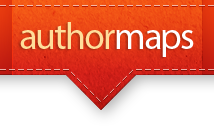What Happened to Karen’s $100,000 Advance?
I know a successful author who got a $100,000 advance from a New York publisher, but ended up in the hole! She had self-published a previous book, but she was making no money on it because of storage costs. Now she has brand-new options that didn’t exist five years ago. Here is her experience and how I helped her learn about better options for her book.
Karen’s story
Karen knew she’d need an agent to get a New York publisher. The best agent, says Karen, is one who has the best “connections.” To get that agent, she hired people to help write, edit, proofread, and review her sample book chapters. Karen did get the best agent. And she paid for it too.
To get a publisher, she now had to submit a book proposal. Her agent referred her to a book proposal adviser. In the midst of proposal-writing, Karen’s adviser got a divorce. Her adviser recommended a replacement he knew, but this adviser went in an entirely new direction! That cost Karen more money and more time. She now had to reconcile conflicting advice from her two proposal coaches.
As part of her book proposal, Karen needed to show how her book would sell. So Karen paid for marketing advice. All the ways she planned to market her book went into her proposal. Her proposal and sample chapters done, Karen waited for her agent to call.
Her accountant added up the money she’d already spent just to “shop” her proposal and sample chapters to a New York publisher. Karen tried not to think about that total. Instead, she dreamed of getting a big advance, one that would cover all those expenses plus those her agent would charge upon getting her a New York publisher.
Good news! The agent got a fish on the line. In fact there was more than one fish. With multiple publishers interested, her agent negotiated a big advance for her. Karen was happy. She thought, “My advance will cover way more than what I’ve already spent on my book.” But it didn’t.
She quickly discovered her contract required her to hire an expensive New York publicist that her publisher wanted. Karen was to pay a year’s salary for this publicist to “assist” her with her marketing, even though she never met the publicist and only talked on the phone with her a couple times. Karen went to a book industry consultant and an attorney and paid them to vet her “non-negotiable” contract with her publisher. They told her it was “standard.” So she went ahead with the deal.
In addition to the salary paid to her publicist, she had to pay thousands of dollars more just to use her New York publicist’s name. Still, it was a name that could get her in the door to talk with people who could help her sell and distribute her book. That name, says Karen, was the most valuable thing she got from the whole process of selling a mainstream book.
She now began writing her book. It took forever because her editor was constantly rewriting it. During this process Karen discovered she had to pay for a photographer, a front and back cover designer, and … what’s this! Pay an indexer too?
Karen got a sinking feeling in the pit of her stomach. She started wondering, “How am I ever going to make anything out of this book?” Her big advance was already gone, paying for her proposal, agent, lawyer, publicist, etc. She had no idea when she’d get her book finished or start getting any royalties.
For a year after she finished her book, while waiting for to collect her royalties from her new book, Karen even had to pay her own travel expenses for the national book tour she’d promised to do in her book proposal.
A tale of two books
Karen told me she loved the fact that she published a book with her New York publisher. She’s glad she had that experience. But after all the rewriting and revisions by her editor (including a title change because times had changed so much by the time her book was actually published), she no longer felt like the book was her “baby.” It was more like….a step-child, she said wistfully.
Previously she’d self-published her first book, the one that still felt like her “baby.” When we spoke on the phone about it, Karen told me she used that book for workshops. And it was still selling well enough in bookstores to reprint. But she was making no income on it because of the costs to store and send it out from a local distributor’s warehouse.
She asked me what I thought of print-on-demand publishers. I went over the pros and cons of POD book publishing, and then suggested she think about alternatives, including converting her book to an e-book. Karen balked, saying workshop attendees would want paperbacks. She told me she’d think it over.
An hour later she called me back. “What about those bookstores that now print books?” she asked. Wouldn’t one of them do for my workshop attendees? They sure could, I replied. (“Bookshops Push Custom Prints: Fast Digital Printers Can Provide Out-of-Stock Volumes to Customers in Minutes” Wall Street Journal, August 27, 2010 B5)
How much to format her book as an e-book? I gave her a ballpark figure for her book. Enthused now, Karen said, “That’s the way to go for me!”
Together Karen and I came up with the ability to do the three things she needed:
Retain control over her book’s contents
Print and distribute her book inexpensively enough to make a profit
Offer hard copies to her workshop participants
What is the right publishing solution for you? Check out this site, and be sure to download my free report on the publishing industry.






